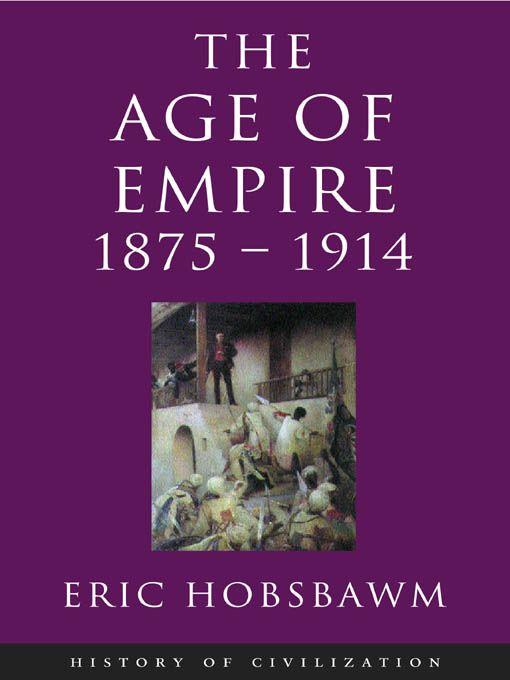

Most ebook files are in PDF format, so you can easily read them using various software such as Foxit Reader or directly on the Google Chrome browser.
Some ebook files are released by publishers in other formats such as .awz, .mobi, .epub, .fb2, etc. You may need to install specific software to read these formats on mobile/PC, such as Calibre.
Please read the tutorial at this link: https://ebookbell.com/faq
We offer FREE conversion to the popular formats you request; however, this may take some time. Therefore, right after payment, please email us, and we will try to provide the service as quickly as possible.
For some exceptional file formats or broken links (if any), please refrain from opening any disputes. Instead, email us first, and we will try to assist within a maximum of 6 hours.
EbookBell Team

4.8
104 reviewsTHE AGE OF EMPIRE is a book about the strange death of the nineteenth century, the world made by and for liberal middle classes in the name of universal progress and civilisation. It is about hopes realised which turned into fears: an era of unparalleled peace engendering an era of unparalleled war; revolt and revolution emerging on the outskirts of society; a time of profound identity crisis for bourgeois classes, among new and sudden mass labour movements which rejected capitalism and new middle classes which rejected liberalism. It is about world empires built and held with almost contemptuous ease by small bodies of Europeans which were to last barely a human lifetime, and a European domination of world history, which was never more confident than at the moment it was about to disappear for ever. It is about Queen Victoria, Madame Curie and the Kodak Girl, and the novel social world of cloth caps, golf clubs and brassieres, about Nietzsche, Carnegie, William Morris and Dreyfus, about politically ineffective terrorists, one of whom, to his and everyone's surprise, started a world war. With the AGE OF EMPIRE, Eric Hobsbawm, Britain's leading historian of the left, brings to a dazzling climax his brilliant interpretative history of 'the long nineteenth century'.
From Publishers WeeklyIn this sequel to The Age of Capital , the author "probes the contradictions of a largely tranquil age that stood on the brink of global slaughter. Hobsbawm's delvings possess a breadth and depth that few historians have equaled, and this wide-ranging chronicle is essential to our understanding of a modern world divided into hostile camps," praised PW.
Copyright 1989 Reed Business Information, Inc.
Preceded by The Age of Revolution, 1789-1848 (1962) and The Age of Capital, 1848-1875 (1975), this completes Hobsbawm's probing analysis of the forces that shaped and defined the 19th century. His approach continues to be thematic rather than chronological; geographical scope is global but with decided emphasis on European and American developments. Hobsbawm moves skillfully through a variety of topics, e.g., the roots of feminism, scientific change, the rise of the working class, and the race for overseas acquisitions. Hobsbawn's Marxist orientation is never dominant or obtrusive. Though not easy to read, The Age of Empire , like its companions, will stand the test of time. Mark R. Yerburgh, Trinity Coll . Lib., Burlington, Vt.
Copyright 1988 Reed Business Information, Inc.